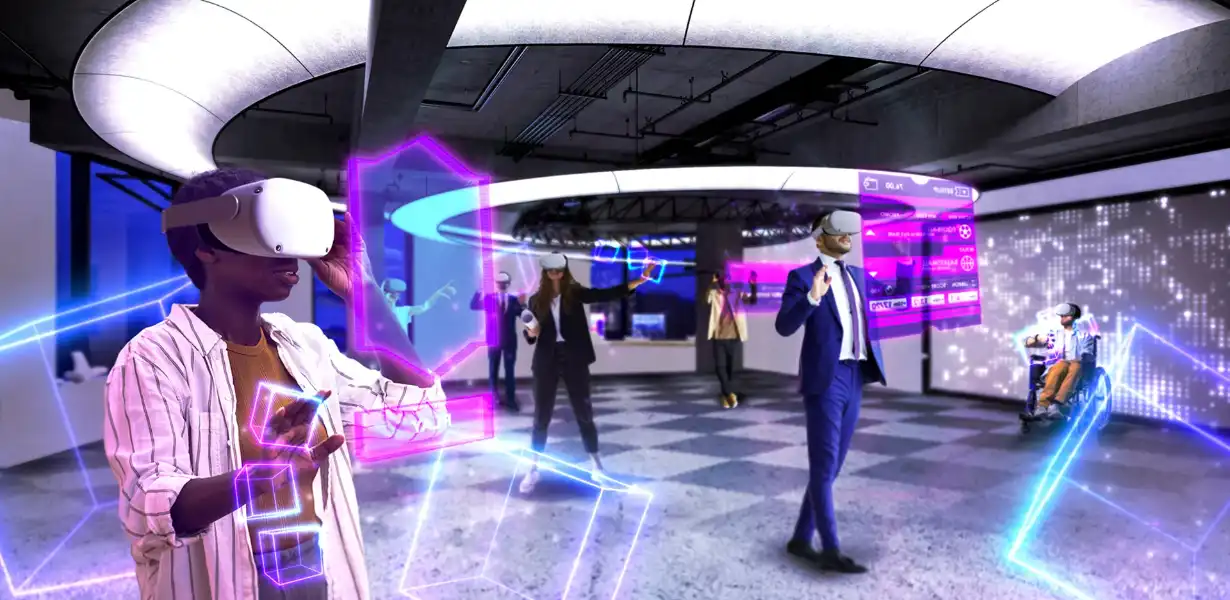
The convergence of technology and entertainment has birthed a realm of digital immersion, redefining how we entertain, interact, and exist online. The metaverse, a fusion of virtual and augmented reality, is not just a concept but an evolving ecosystem that’s reshaping the landscape of entertainment. From gaming to social interactions, education to commerce, the metaverse has become a hub for diverse experiences, captivating millions worldwide.
The Metaverse Unveiled
The metaverse is an expansive digital universe where users interact through avatars, creating, sharing, and engaging in a variety of experiences. It’s not confined to a single platform but comprises interconnected virtual spaces, offering an array of activities. It’s a multifaceted environment where users can seamlessly transition from gaming to attending live events, shopping, socializing, and much more.
Entertainment Redefined
Immersive Gaming Experiences
The metaverse has redefined gaming, offering a level of immersion and interactivity never seen before. Virtual reality (VR) and augmented reality (AR) technologies have birthed environments where gamers are no longer mere spectators but active participants, blurring the lines between the digital and physical worlds.
Live Events and Performances
From live concerts to art exhibitions, the metaverse hosts an array of events that bring together individuals from across the globe. Users can attend these events through their avatars, fostering a sense of presence and community.
Virtual Social Interactions
It’s not just about gaming or events; the metaverse is a social hub. Users can socialize, create connections, and engage in activities, fostering a sense of community in a virtual space.
Educational Platforms
The metaverse isn’t limited to entertainment; it’s a platform for education. Interactive learning experiences and simulations are transforming the way knowledge is imparted, making learning more engaging and practical.
Commerce in the Metaverse
Commerce in the metaverse is a burgeoning frontier. Virtual marketplaces allow users to buy, sell, and trade digital goods, real estate, and even services. Brands are entering this space, creating a new dimension for advertising and consumer engagement.
Challenges and Opportunities
While the metaverse promises boundless opportunities, it also presents challenges. Privacy concerns, security issues, and the need for standardization are among the hurdles that need to be addressed for its seamless integration into our daily lives.
Final Words
The metaverse is not just a concept; it’s a reality that’s reshaping how we engage with the digital world. Its potential for entertainment, education, commerce, and social interactions is vast and ever-expanding. As we navigate this new terrain, the metaverse heralds a paradigm shift in our digital experiences.
Commonly Asked Questions
1. How is the metaverse different from virtual reality?
The metaverse is an interconnected virtual space that goes beyond a singular VR experience. It’s a collective virtual universe where various digital experiences coexist.
2. Are there any limitations to the metaverse?
Privacy concerns and the need for standardization are among the primary challenges that need to be addressed for the metaverse to reach its full potential.
3. How does the metaverse impact traditional entertainment?
The metaverse redefines entertainment by offering immersive and interactive experiences, impacting traditional forms like gaming, live events, and social interactions.
4. Can anyone access the metaverse?
Yes, most metaverse platforms are accessible to anyone with a compatible device and an internet connection, allowing users to create avatars and immerse themselves in the digital world.
5. What industries are leveraging the metaverse?
Industries like gaming, entertainment, education, and commerce are actively leveraging the metaverse, exploring its potential for growth and innovation.









